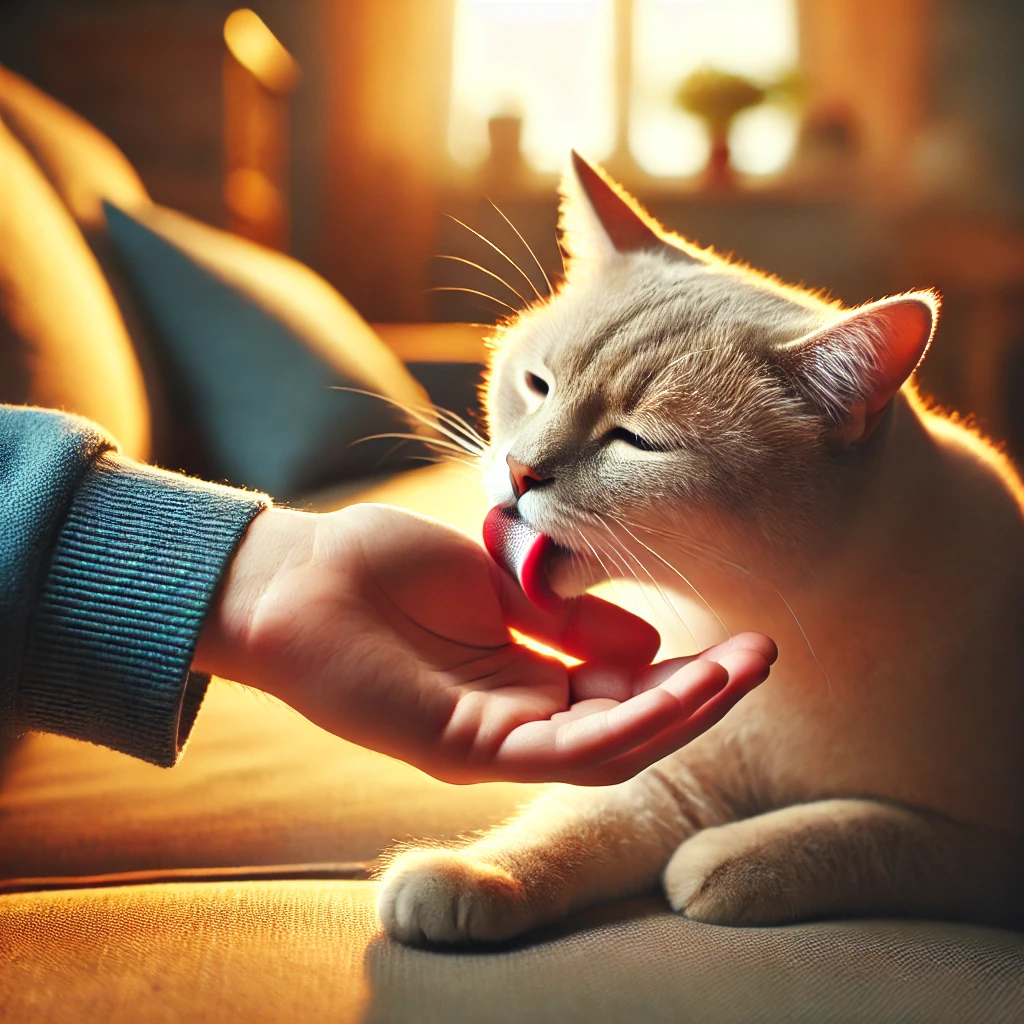Cats are fascinating creatures, often displaying behaviors that leave their owners curious. One such common action is licking. If you’ve ever wondered, why do cats lick you?, the answer lies in a combination of instinct, affection, and communication. This guide dives deep into the reasons behind this behavior and helps you interpret what your furry friend might be trying to say.
The Evolutionary Roots of Cats Licking Their Owners
Cats have been using licking as a survival tool for thousands of years. From birth, kittens are groomed by their mothers, a process essential for:
- Cleaning: Removing dirt and odors that might attract predators.
- Stimulation: Encouraging bodily functions like urination in newborn kittens.
- Bonding: Establishing trust and affection within the litter.
Keyphrase in subheading: Use more keyphrases or synonyms in your H2 and H3 subheadings!
Why Do Cats Lick You to Show Affection?
One of the most heartwarming reasons cats lick is to show affection. Just as they groom other cats in their social circle (a behavior known as allogrooming), cats often lick their owners to strengthen bonds. By sharing scents, they include you in their territory and social group. This is supported by studies on allogrooming in domestic cats, which highlight its role in trust-building.
Signs Your Cat Is Bonding with You:
- Licking paired with purring or kneading.
- Gentle nuzzles followed by grooming.
- Licking specific areas like hands, face, or hair.
Exploring Why Cats Lick People Due to Curiosity
Cats experience the world differently. Licking helps them explore their environment, especially when they detect something new. Your skin might have:
- Salty residue from sweat.
- Unfamiliar smells from objects you’ve touched.
Cats’ advanced vomeronasal organ allows them to “taste” scents, enhancing their sensory understanding. This exploration might feel ticklish but shows their innate curiosity.
For additional insights into their sensory behavior, check out this detailed guide from the Humane Society.
Stress and Anxiety Relief Through Licking
Just like humans bite their nails or fidget, cats sometimes lick excessively as a self-soothing mechanism during stressful times. Stress-related licking could indicate:
- Anxiety due to changes in their environment.
- Medical issues or discomfort.
If you notice persistent licking paired with other signs of stress, consult a vet. Excessive licking may also point to allergies or skin conditions, according to the Humane Society’s guide to pet care.
How Cats Lick You to Mark Their Territory
Cats are territorial by nature. When they lick you, they leave behind pheromones to mark you as part of their territory. This behavior might intensify in multi-pet households where competition for resources exists. Licking is their way of saying, “You’re mine.”
FAQs About Why Cats Lick You
Why does my cat lick me and then bite me?
This seemingly contradictory behavior might signal playful interaction or overstimulation. Monitor your cat’s body language to understand their mood.
Is it safe to let my cat lick my face?
While cat saliva contains bacteria, occasional licking is harmless unless you have open wounds. Washing afterward is a good precaution.
Why does my cat lick my hair?
Cats often lick hair because it mimics grooming within their group, reinforcing their bond with you.
What if my cat licks excessively?
Excessive licking can indicate health problems or anxiety. Consult your veterinarian to rule out underlying conditions.
Conclusion
When your cat licks you, it’s much more than a random act. It’s a combination of affection, communication, and instinct. By understanding the reasons behind this behavior, you can deepen your bond with your furry friend. Pay attention to the context and other signals to interpret their feelings accurately.
For more insights into feline behavior, explore guides on understanding cat stress and building strong bonds with pets.







